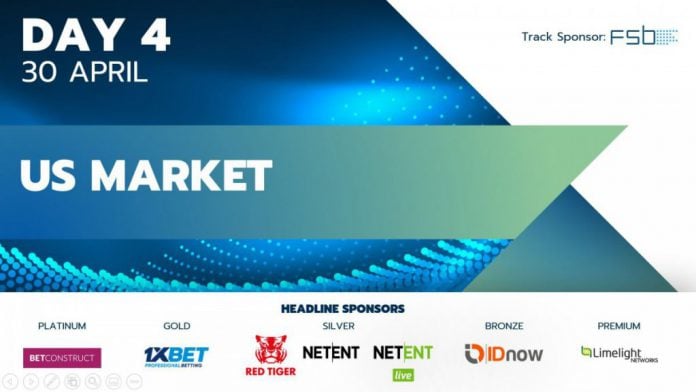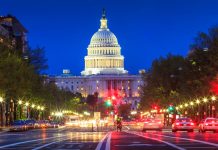While COVID-19 continues to dominate the hearts and minds of most who are actively involved in the betting sector, the ongoing process of state-by-state legislation remains high on the agenda as the sector aims to predict what happens beyond the health crisis. The topic was given in-depth consideration by a panel session titled “Update on State Legislative Efforts in 2020” at this week’s SBC Digital Summit.
Speaking on the panel were John Pappas, Founder/CEO, Corridor Consulting; Steve Brubaker, President, Brubaker Public Relations; Stacie Stern, Director, Governmental Affairs, FanDuel; and Matt Carey, Reporter, Vixio Regulatory Intelligence. Moderating duties were undertaken by George Rover, Managing Partner, Princeton Global Strategies.
Discussions focused on states including Virginia, Tennessee, South Dakota, Washington and Maryland. On Virginia sports betting, Pappas attempted to clarify the current position, saying: “There are going to be seven, at maximum, untethered licenses if all five casinos choose to do sports betting. And in all I don’t see more than 13 or 14 mobile platforms being able to operate in the state of Virginia.
“That’s how I have interpreted it, and quite frankly in conversations with the Virginia Lottery as they interpret it. I think there is a maximum of 12 untethered licenses. However, if all five authorized casinos choose to do sports betting they would get preferential treatment for five of those licences.
“So that would really decrease that number to seven untethered licences. Five attached to a casino and one or two that would be attached to a sporting facility. Right now the only ones that would qualify for that would be DC United and the Washington Redskins.”
Discussing the current status of Tennessee, a mobile-only state, Stern commented: “I think a lot were surprised when Tennessee was the fourth (state) in 2019 to pass sports betting legislation. There is no limit on the number of operators. However, when you look at the license fee and the application fee – $800,000 is a significant amount to be able to come up with right away.
“We’re not talking in the millions like some other jurisdictions, but it does have a 20% tax and one of the things to note is that in Tennessee college prop bets are prohibited. Personally this is a tough argument for me. It may feel good to prohibit college prop bets and protect the athletes, but I think this is something that we need to evolve and to share with legislators that you’re really not. You’re just forcing people toward an unregulated market.”
Opening up discussion on South Dakota, which could fully legislate in 2021, was Carey who said that many questions remain unanswered as to how the regulatory structure will take shape. “The debate in South Dakota was centered around just the idea of having sports betting and even whether it would be a positive revenue generator in the state.
In South Dakota they’re still on the starting blocks in terms of first of all should we have it, and if we do have it then we’ll figure out what that regulatory structure looks like. I know that at some points the gaming association has pitched something of a model similar to what Iowa has where you have in-person registration at the casinos and potentially state-wide mobile after that once you’ve registered. But again it’s still early in the process of figuring out what the model will look like if it does in fact pass on the ballot in November.”
Discussion among the panel also took in the coronavirus outbreak and how it is impacting on the legislative process during the current lockdown. Brubaker offered a political perspective, commenting that legislators are looking at COVID in terms of what is the most important thing for the well-being of their constituents.
“That has really ground most bills to a complete halt,” he said. “I think that you’ll see all states just chuck all of the non-essential pieces of legislation aside and pass bills that are focusing on taking care of the economy after the COVID part of this is over. I am wondering if any other type of legislation besides that will be completed in the rest of this session.
“We are in the first quarter of the year – there’s a lot of year left. But there’s not a lot of legislators that are going to be in town in that year. Most legislatures are done by June. I think this year because of COVID you’re going to see special sessions and maybe extensions of sessions to do COVID related things. I think it makes it a hard sell to talk about gaming extension when people may not be getting their unemployment cheques.”















